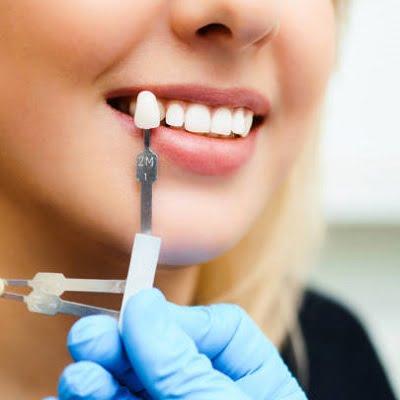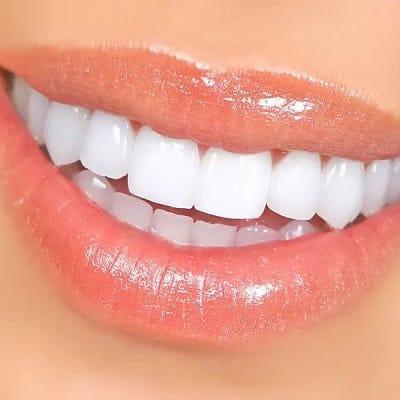Dentists recommend crowns when a filling is inadequate to restore a tooth that is excessively damaged or rotten. Therefore, a dental crown is a good alternative when no more natural tooth structure remains in a tooth with an old, fractured, or failing filling. However, crown types come in a variety of forms. Further, each form has special qualities to suit the requirements and preferences of a particular patient. Additionally, permanent and temporary crowns are two of these alternatives, and they have different functions in dental repair.
Moreover, temporary crowns are short-term ways to preserve the prepared tooth. Additionally, they aid in maintaining the spacing to stop nearby teeth from drifting, guaranteeing a proper fit for the permanent crown. This blog will help you choose the right material for your dental crown to make a well-informed decision.
Different Types of Dental Crown
Dental crowns are of different types. These are made of zirconia, porcelain, ceramic, metal, gold alloy, or a mix of these materials. Moreover, there are benefits and drawbacks to each kind of crown material, which may impact things like cost, longevity, and the teeth’s natural look. The location and function of the tooth’s bite, the patient’s preferences, and the dentist’s advice all play a role in the material selection process.
Following are the different types of dental crowns.
Gold Crowns
Gold crowns, made from copper mixed with other metals, are strong, resilient, and long-lasting. They are recommended for back restorations, particularly second molars, due to their natural deterioration and minimal extraction. However, they have drawbacks, such as poor aesthetics and potential adverse effects like swelling or allergic reactions.
Dental Crowns Made of Ceramic:
All-ceramic or all-porcelain dental crowns offer a natural-looking alternative to metal crowns for those allergic to metal. They improve tooth aesthetics and restore function but may wear down adjacent teeth and lack the durability of metal or porcelain-fused-to-metal crowns.
Ceramic-Fused-to-Metal (PFM) Dental Crowns
Crowns combine strength and style, offering a natural appearance when matched to nearby teeth. Durable and visually appealing due to sturdy metal construction and porcelain coating, they can sometimes crack or fall off, with the metal below showing through.
Dental Crowns Made of Metal
Metal crowns, made from base metal alloys like nickel, chromium, or gold, are known for their strength and longevity. Their thin nature prevents tooth structure loss, ensuring optimal retention and strength. They can withstand chewing and biting pressures without breaking. However, their shiny color can be a drawback for some patients.
Zirconia Crowns for Teeth
Zirconia is a relatively new material for dental crowns, but it is already gaining recognition for its resilience and realistic look. Benefits include strength and the ability to match the color of natural teeth with zirconia crowns. Because of biting pressure, zirconia’s hardness may cause damage to neighboring teeth.
How to Choose the Right Material for Your Dental Crown
Discuss your unique oral care requirements and desired cosmetic outcomes with your dentist. Among the most crucial elements to take into account are:
- Strength: The two strongest materials for crowns are metal and zirconia. Your dentist could suggest these solutions if you clench or grind your teeth. Consider considering further safeguarding your teeth.
- Longevity: A crown usually lasts ten to fifteen years or more. Nevertheless, after three to eight years, composite crowns can need replacement.
- Appearance: All ceramic crowns provide the most lifelike appearance of real teeth. While porcelain-fused-to-metal crowns may be colored to match your natural teeth, there is a chance that the metal behind the porcelain can sometimes show through as a black line.
- Cost: Unless you are interested in a gold crown, all-ceramic crowns are often more expensive than metal crowns. Your dental insurance could pay for a part of the cost of your crown if you have one.
- Convenience: You may save time and money by seeing a dentist who fabricates dental crowns in-office using technology.
- Metal allergies: It is crucial to inform your dentist if you have ever had an adverse response to metal. Crowns made entirely of porcelain, ceramic, or zirconia are very biocompatible and devoid of metal.
Conclusion
Selecting the right dental crown material is crucial for improving your smile experience. Choose from metal, porcelain, or ceramic, and work with your dentist to select a material that complements your oral structure. Your cooperative relationship with your dentist helps steer the selection process, meeting aesthetic and oral health objectives. Your new dental crown enhances your smile and provides self-assurance and practical improvement.
For professional advice, consult with the specialist dentists at Enfield Royal Clinic, who can recommend the customized and best-fit dental crown.






Leave a Reply